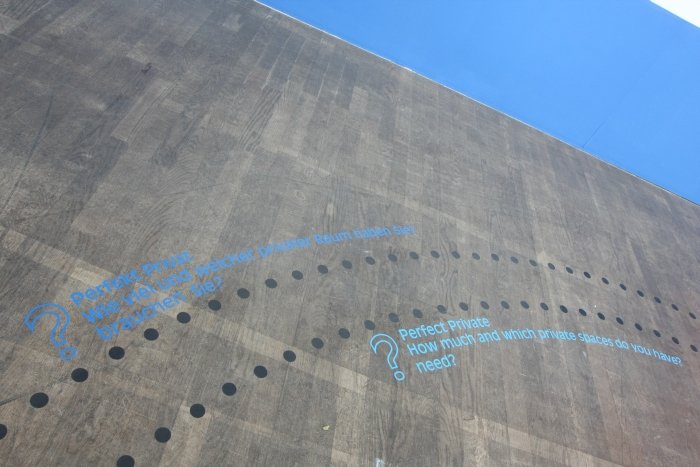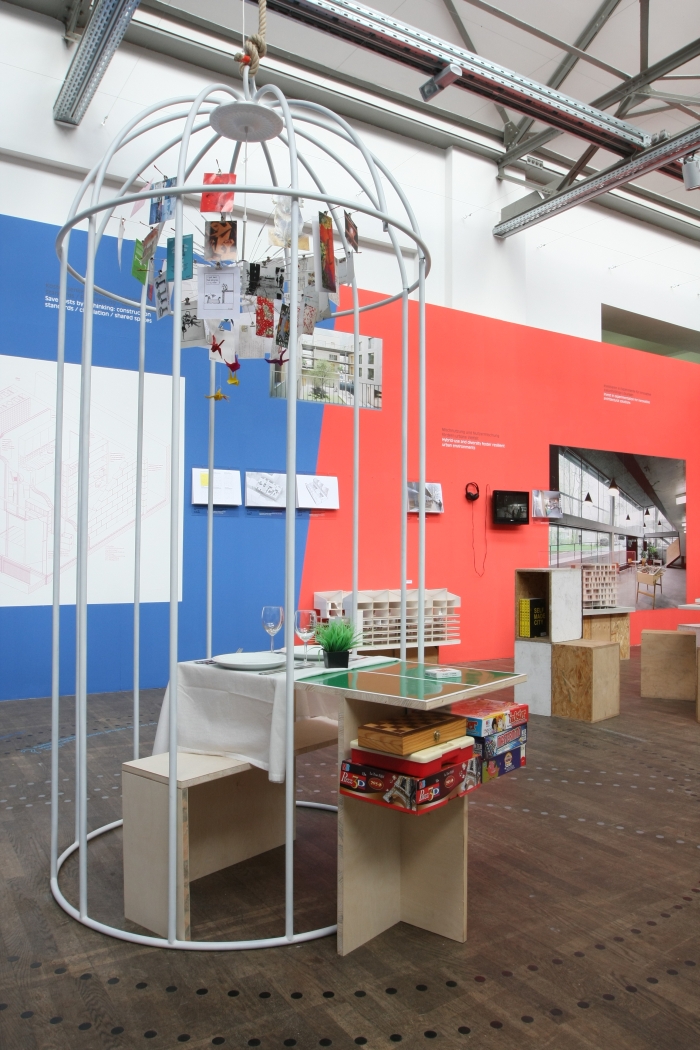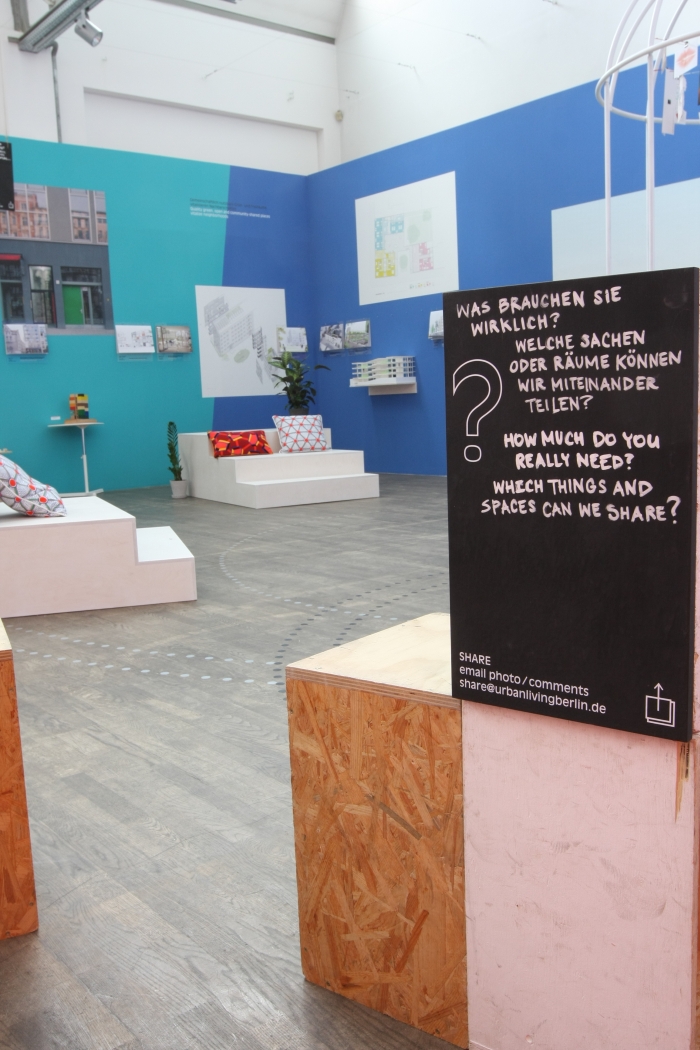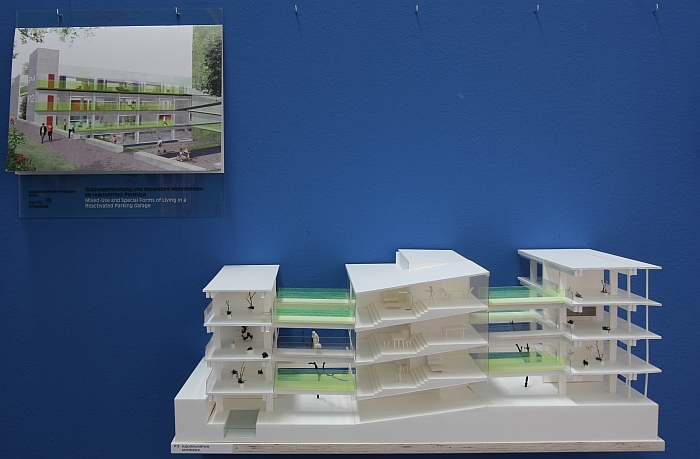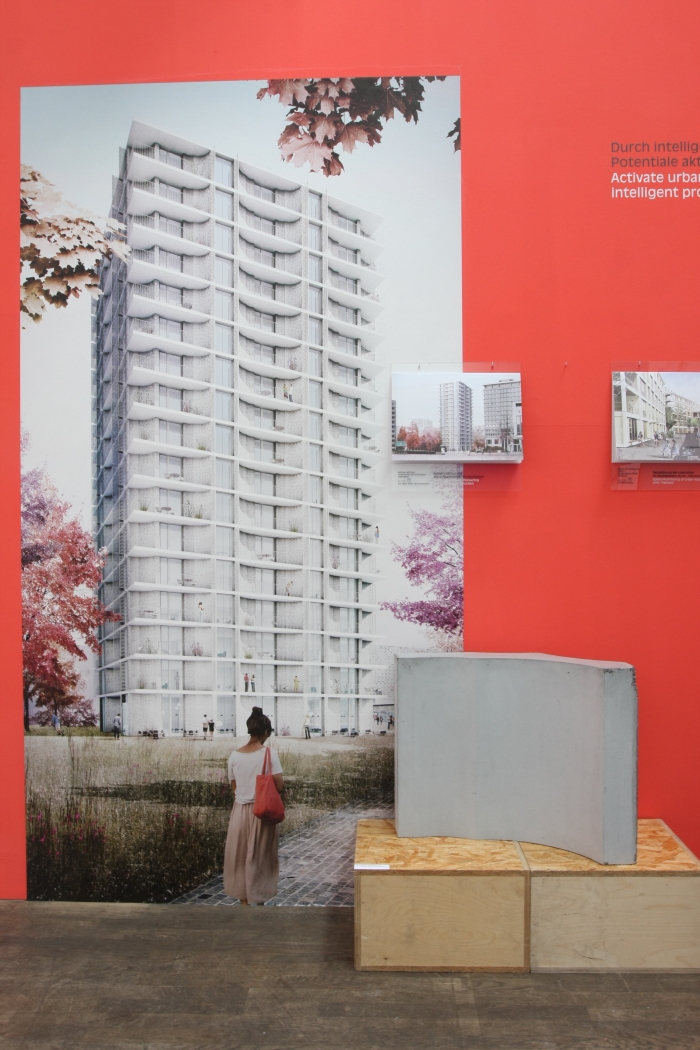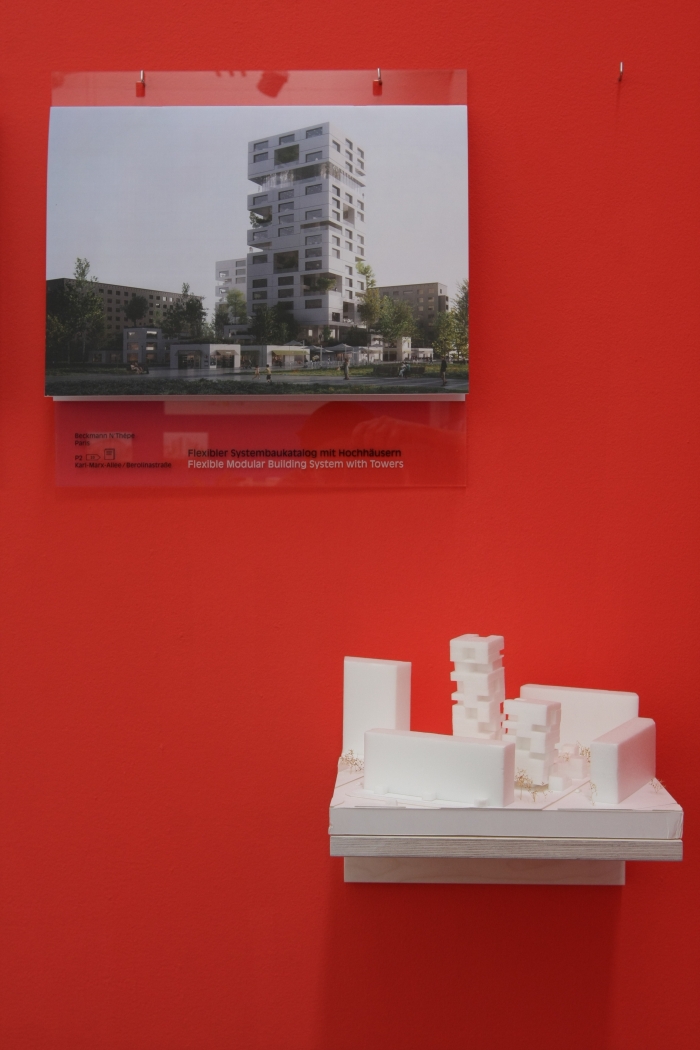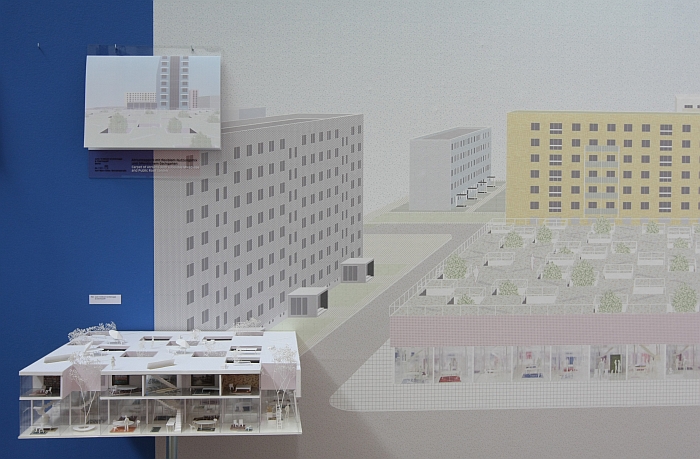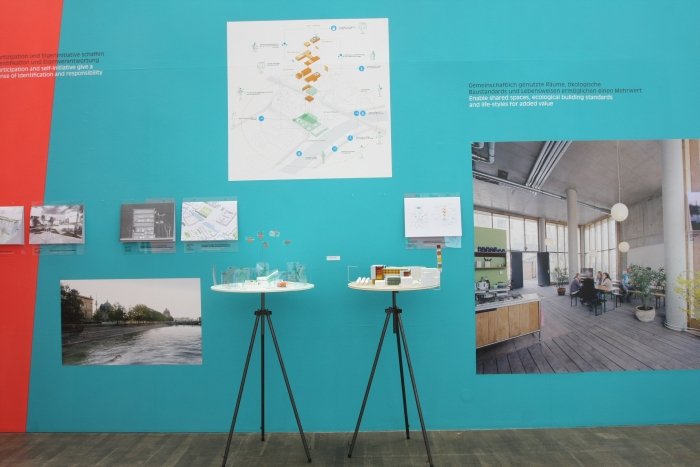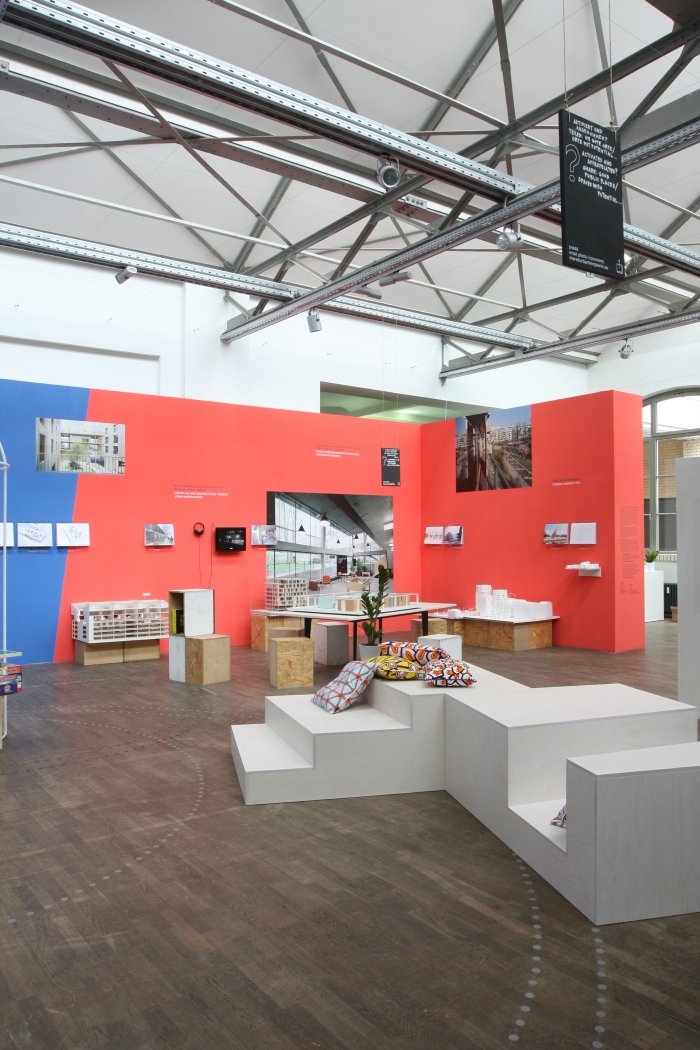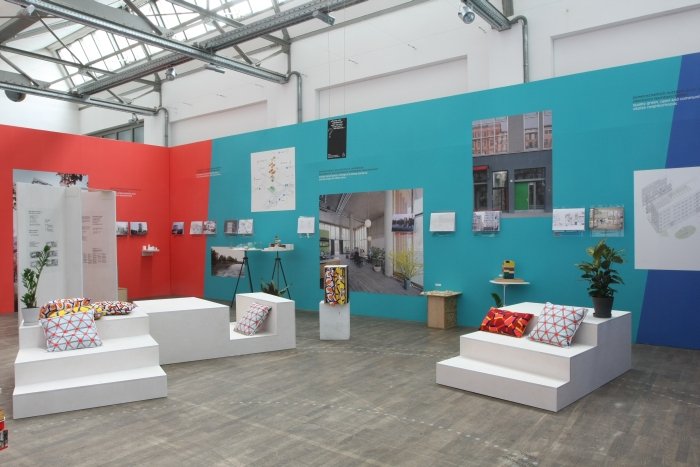How can the urban environment be improved with new housing? Which spatial constellations foster interaction? Which strategies reduce costs but still produce a high quality? How can we initiate a new era of house building? Such and similar questions are posed, and possible answers presented, in the exhibition URBAN LIVING - Strategies for the Future currently on show at the Deutsches Architektur Zentrum DAZ in Berlin.
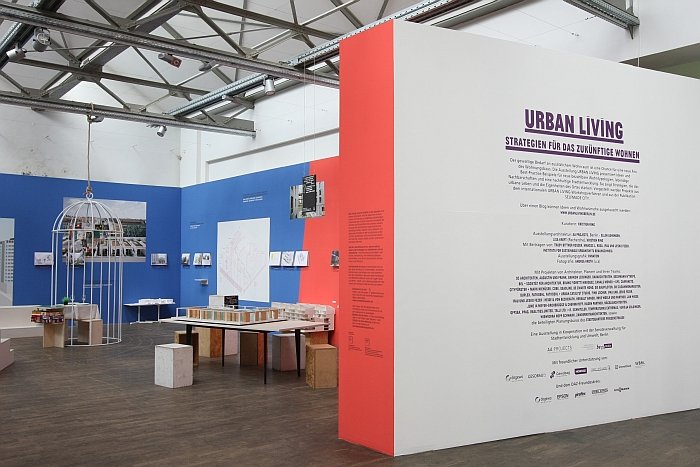
Curated by architect and critic Kristien Ring from Berlin based AA Projects, Urban Living presents a mix of concepts realised in context of the Berlin regional governments 2013 Urban Living workshops programme and projects featured in Selfmade City, Kristien Ring's survey of the contemporary architecture landscape in Berlin, and aims through the selected projects to present ideas and concepts which explore how future housing and urban planning can be developed so as to strengthen communities, reduce costs and produce sustainable urban environments which encourage and promote self-determination and individual freedoms.
In an intelligently realised exhibition design Urban Living - Strategies for the Future makes judicious use of models, texts and plans to explain the projects and their relevance to the problems of contemporary housing and/or urban planning. Particularly pleasing is the decision to "hide" the texts and plans behind photos of the projects, all the information you need and want is there, but only when you need and want it, unlike in so many architecture exhibitions where from the moment one enters a room one is overloaded with texts: texts which one invariably quickly loses the will to study. Urban Living is much more sensitive to the visitors fragilities. Equally pleasingly it is also one of the more colourful architecture exhibitions we have visited of late.
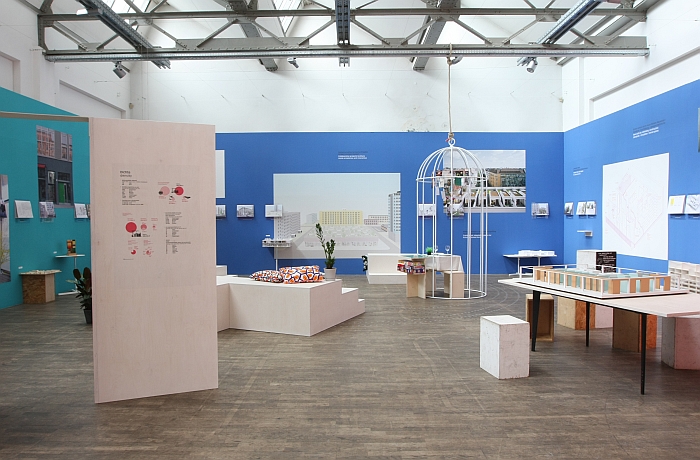
Viewing Urban Living the obvious question which arises is, for whom is the exhibition intended? The obvious answer is all with an interest or stake in urban planning and the future of built environments. Or put another way, everybody. And as an exhibition Urban Living is accessible to all, and while it features purely Berlin based and/or inspired projects, the underlying principles on which they are based are in the majority of cases universally applicable.
"But what's the point?" we hear you reply, "everyone knows decisions on architecture, urban planning and regional development are rarely taken by those directly affected but by small cliques, invariably guided by personal manifestos, egoism and/or the promise of financial gain."
"Yes", we reply, "and that must change before questions such as how can the urban environment be improved with new housing, which spatial constellations foster interaction or which strategies reduce costs but still produce a high quality, can be satisfactorily answered. Architecture and urban planning must always reflect local conditions, local needs and for all locals, and that is why it is important that you go, to understand what alternatives are possible and to consider such in context of your own opinions." Otherwise you may find yourself experiencing a new era of house building from which you feel alienated and removed.
Which isn't to say that all the projects on display are perfect and provide the solutions we've all been waiting for, they aren't, and there is in addition a very disappointing formal monotony in the invariable quadratic greyness of many of the visualised buildings, further evidence if you will of contemporary architects stubborn resistance to anything other than the box they all claim to think outside of; however, the point isn't the projects per se but the way the projects attempt to present future orientated solutions for house construction and urban planning and the insights that are thus offered into the challenges involved and the advantages of facing then communally.
As we believe we've said before, easy as it is to complain after the fact, it is much easier to be correctly informed in advance.
URBAN LIVING - Strategies for the Future runs at the Deutsches Architektur Zentrum, DAZ, Köpenicker Straße 48/49, 10179 Berlin until Saturday July 4th
In addition to the physical exhibition a virtual exhibition and discussion platform can be found at www.urbanlivingberlin.de


